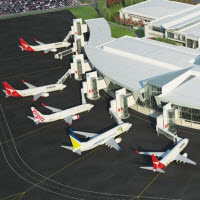 Flying with a disability is not always easy, especially when you are unable to walk or use public transport.
Flying with a disability is not always easy, especially when you are unable to walk or use public transport.
If you're like most people, you probably dread the thought of flying. But if your flight is delayed, don't worry- there are plenty of ways to make the experience as smooth as possible for people with disabilities. In this guide, we'll outline some of the most common ways to fly when a delay is inevitable, and give you tips on how to make the most of your journey.
1. Know your rights: If you have a disability, know your rights and what to do if a flight is delayed.
In the United States, all passengers with disabilities are guaranteed free assistance when traveling by air under the Air Carrier Access Act (ACAA). Airlines are responsible for providing assistance at the airport and inflight. Unless they have a reasonable suspicion that you will cause problems, airport personnel are unauthorized to require you to leave the airport if your flight is delayed. Airline agents have a duty of care and must not discriminate against passengers because of their race, ethnicity, national origin, gender, sexual orientation, age, disabilities, or any other protected characteristic.
If your flight is delayed or canceled, airline agents must assist you according to your personal needs and offer you a refund or a new flight to your destination.
In Europe and in the United Kingdom, all passengers with disabilities are guaranteed free assistance when traveling by air under Regulation EC1107/2006. Airports are responsible for providing assistance on the ground while air carriers are responsible for providing assistance inflight. Airport staff and airline agents have a duty of care and are under the obligation to treat all passengers the same way. An airline agent or airport staff member must not discriminate against passengers because of their race, ethnicity, national origin, gender, sexual orientation, age, disabilities, or any other protected characteristic.
If your flight is delayed or canceled, airline agents must assist you according to your personal needs and offer you a refund, a new flight to your destination or provide food vouchers and accommodation in case your new flight leaves the following day. Airport agents must attend to the needs of passengers with disabilities and must coordinate with airline agents depending if your flight is delayed, postponed, or canceled.
2. Prepare for the worst: Ensure that you have everything with you in case of an emergency or medical condition while flying with a disability.
This includes travel documents such as your passport, visas, and tickets, medications you may need, identification such as a driver's license or passport photo ID, important personal documents like bank statements and insurance policies, and communication devices like a telephone and a portable listening device.
Always keep your medication in your hand luggage for ease of access. Medication can be carried on board free of charge. When preparing for your trip always have extra medication for at least an additional week as flight delays can be longer than just one or two days, especially if weather-related.
If you are traveling with your own wheelchair, take photos before you hand it over to the airline staff. These will prove very useful in case your wheelchair is returned damaged.
3. Speak up: If there is something wrong at the airport or on the plane, speak up and make sure it gets fixed as soon as possible before any problems arise from delays caused by bad weather conditions or mechanical issues at airports across the world.
If you think you are not receiving the assistance you are entitled to, don't be afraid of being assertive! Most problems can be resolved immediately if you speak to the right person.
In the United States, ask to talk to the airline Complaint Resolution Officer (CRO). Every airline must have one on duty at all times. He/she will be your primary point of contact if you have a problem.
In Europe, ask to speak to the airport PRM manager for everything that has to do with assistance within the airport. Onboard, you will need to speak to the Cabin Purser.
These useful tips are simple solutions to most problems you may face in case of a flight that is delayed or canceled. Have a good flight!
 Flying with a disability is not always easy, especially when you are unable to walk or use public transport.
Flying with a disability is not always easy, especially when you are unable to walk or use public transport. 









